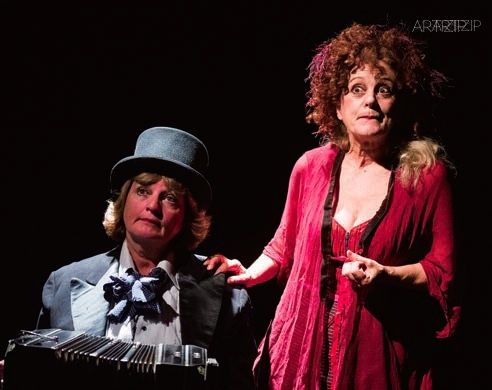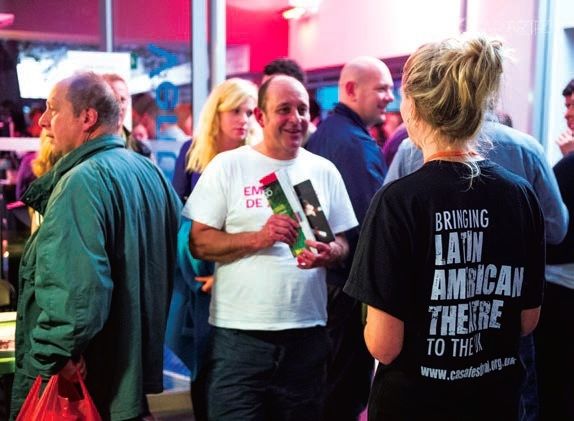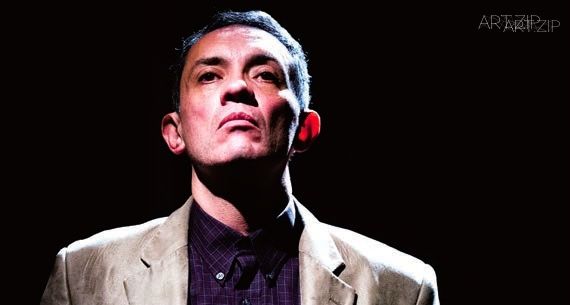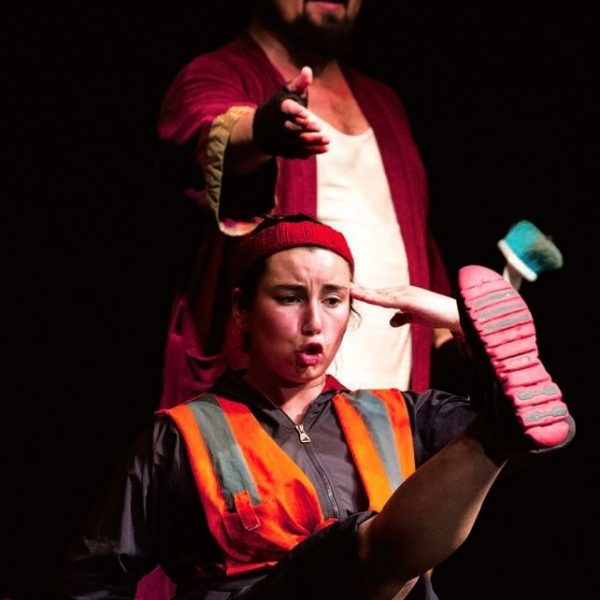
CASA Latin American Theatre Festival was created in 2007 by Daniel Goldman to fill a gap that needed filling. While Latin American cinema, music, visual arts and literature were enjoying a great success in the UK, theatre somehow had been left behind. CASA was set up to change this, to build bridges between two incredible theatre cultures, to create regular opportunities for Latin American theatre and theatre makers in the UK.
This year the CASA Latin American Theatre Festival, now in its fourth year, assumed a political theme, boldly confronting a variety of topics, from imaginary dictatorships to the very real horrors faced by Bolivian migrants. La Razón Blindada, performed by Ecuador’s highly acclaimed Malayerba theatre company, majestically steps up to the task, illustrating one of the most brutal periods of South American history, the Dirty War. Yet the play never makes explicit mention of the war, focussing instead on the daily lives of two prisoners and their weekly performances of the Golden Age epic, Don Quixote.
創立於2007年的卡薩拉丁美洲戲劇節(CASA)如今已經舉 行了6屆。在拉美音樂、美術和電影在歐洲主流藝術領域都 有所成就的對比下,拉丁美洲深厚的戲劇傳統似乎被忽略 了。今年的演出集中了來自阿根廷、厄瓜多爾、智利等國家的 作品;演出場地更是有包括巴比肯在內的若幹重要劇場。
.
The opening scene is a rather surreal choreographed dance, with Sancho Panza copying Don Quixote’s measured limb-stretching, hand-twirling and neck-rotating. They are seated, and seem able only to explore the space surrounding their chairs, immediately establishing a sense of entrapment. Incidentally, the characters never leave their chairs and the prison’s four walls are deftly constructed by this decision. We are then instantly thrust into a reinvented narration of the epic tale of Don Quixote, interspersed with snippets of conversation about their daily life – the hunger, loneliness, the restrictions which allow them only to meet on Sunday. The dialogue is initially rather confusing, and further hindered by the awfully-timed surtitles, making it difficult to engage with either the ‘real’ conversations or the vivid narration of their chosen epic.
The line between the real and fictional elements of the characters becomes increasingly blurred, and this is exactly where the strength of the play lies. It purposefully withholds all details about the brutalities of the political situation, never allowing us to pity the characters, but instead drawing us deeper into the vivid fictional world the prisoners have created for themselves. It is only at the end that a short film is projected onto the back wall, informing us of the camps in Patagonia where thousands were kept as political prisoners. Yet ultimately the play is not intended as stone-cold evidence of the horrors of the Dirty War. It is a moving testament to the singular power of the imagination and man’s will to endure, even at the cost of his sanity.
在巴比肯演出的這部來自厄瓜多爾的作品《防彈原因(LaRazón Blindada)》充 斥著政治性的諷刺。阿根廷20世紀70年代專政時期,有兩個被因為賭球而被囚 禁的罪犯,他們被允許每周見面一小時,在這期間,為了逃離殘酷現實,他們便不 停地為彼此講述唐吉坷德和其隨從桑丘·潘沙的故事。被迫面對面坐在座位上的 六十分鐘說長不長,說短不短,他們因此恣意放任思緒隨著這位被西班牙作家米 格爾·德·塞萬提斯(Miguel de Cervantes)塑造出來的怪俠四處遊蕩,想象自己能 像 他 一 樣 ,把 風 車 看 成 巨 人 ,把 監 獄 當 做 天 堂 。這 部 來 自 厄 瓜 多 爾 的 戲 劇 ,由 阿 裏斯蒂德·巴爾加斯(Arístides Vargas)撰寫,在阿裏斯蒂德·巴爾加斯(Arístides Vargas)和馬·德爾羅薩裏奧·法朗西斯(Ma. Del Rosario Francés)共同執導下,演 員格爾森·格拉(Gerson Guerra)及阿裏斯蒂德·巴爾加斯(Arístides Vargas)以如 彈似雨的快速對話和變化多端的道具來吸人眼球、同事也考驗著觀眾的想象極 限。劇場裏全程配有西班牙與英文字幕,即便所有人都被綁定在自己的位子上, 也一定能跟著情節,在腦海中塑造出只屬於自己的世界。
.
.
Tips 小貼示
更多信息: www.casafestival.org.uk




